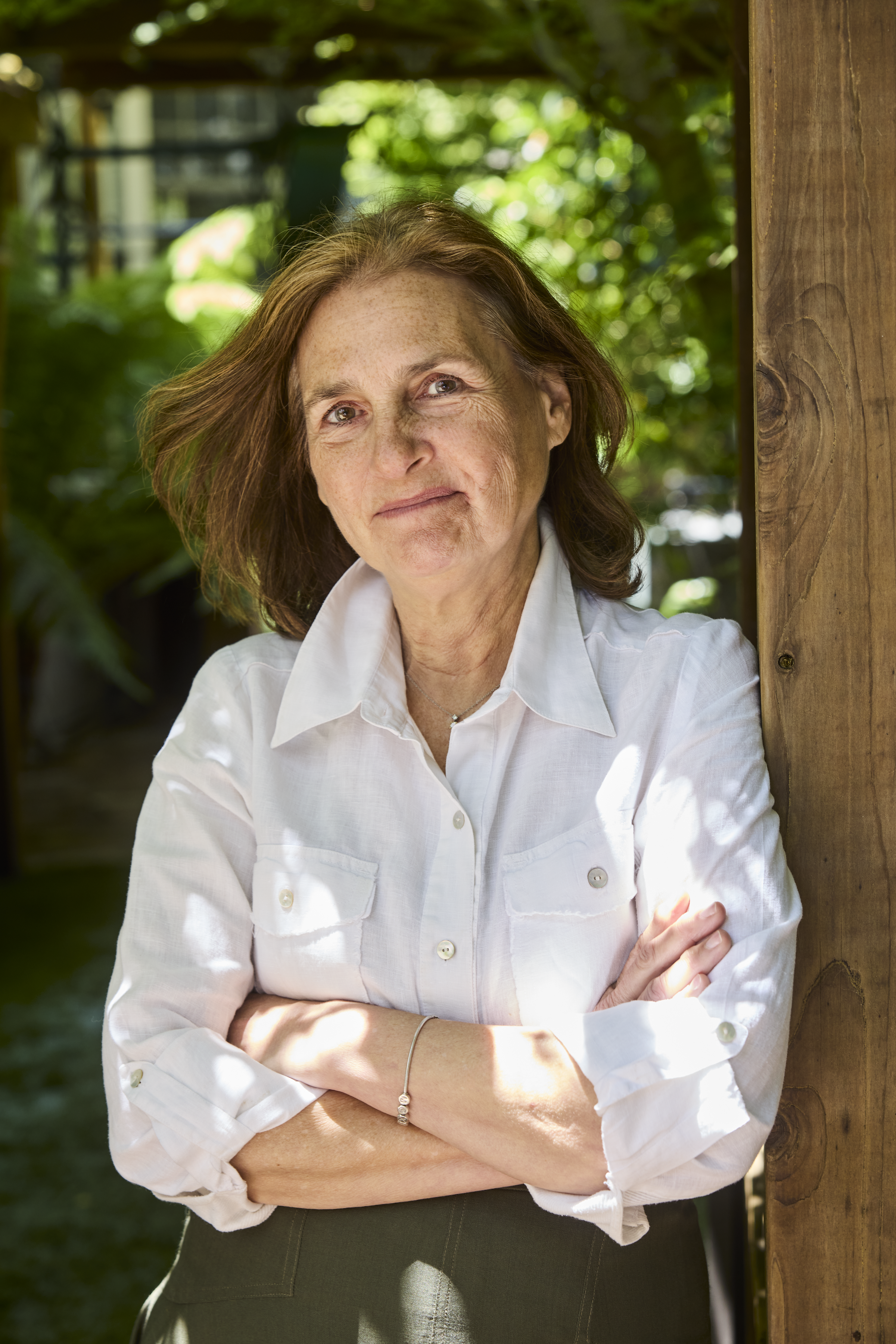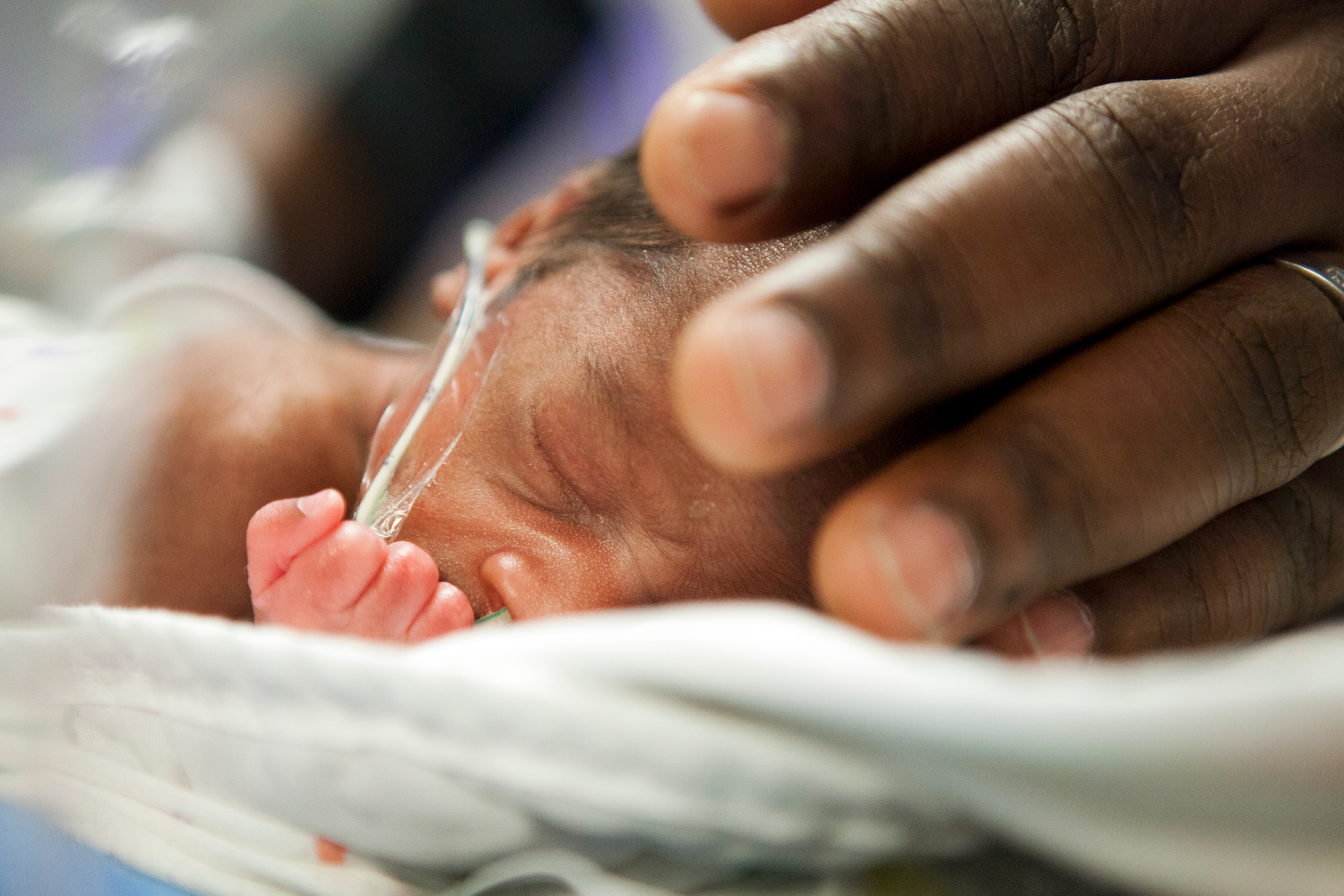A More Nurturing Place for Newborns

Photo by Gabriela Hasbun
A More Nurturing Place for Newborns
Deborah Buehler has helped transform how hospitals around the world treat high-risk and preterm infants
Four decades ago, the first days of a premature baby’s life could be tough. They would be whisked away to a neonatal ICU—bright and loud, so different from the comfort and safety of the womb—placed on hard, flat surfaces, and handled by medical staff at all hours of the day.
As a BU Wheelock student in 1982, Deborah Buehler worked on a pilot study at Boston Children’s Hospital (then Children’s Hospital Boston) to explore how the relatively harsh environments of NICUs could be affecting these babies, who were at risk for cognitive, social, and emotional challenges.
“This is at a time when these infants are rapidly growing and developing,” says Buehler (Wheelock’82, GRS’93). “Their brains are using the inputs they’re receiving from these environments to organize themselves. So the question then was: could these environments be structured in such a way to best support their growth and development?”
Buehler would go on to become a pioneer in pediatrics, helping develop and expand a groundbreaking approach to developmental care for newborns, especially preterm and ill infants, in intensive care units.
The model, called Newborn Individualized Developmental Care and Assessment Program (NIDCAP), considers infants and their parents as individuals and collaborators in their care. “Traditionally, the nurses and physicians were considered the experts of the baby,” she explains. “But, with NIDCAP care, the collaboration is really about medical staff supporting the baby-parent unit and baby-family unit. Healthcare professionals support each family as the experts of their baby, and as full, active members of the caregiving team.”
The first NIDCAP training center opened in Boston in 1982; today, there are more than 2,000 certified NIDCAP professionals and 31 NIDCAP training centers in 18 countries.
Buehler is an assistant professor of pediatrics and director of the West Coast NIDCAP and APIB Training Center at the University of California San Francisco (UCSF) School of Medicine (APIB is the Assessment of Preterm Infants’ Behavior, a neurobehavioral assessment involving close study and interpretation of babies’ actions), and serves as president of the NIDCAP Federation International, the nonprofit training and membership organizing body for NIDCAP training centers around the world.
Listening to Babies
NIDCAP was founded by developmental psychologist Heidelise Als and was based on her observations of NICU wards. Buehler met Als during her field placement semester at Boston Children’s Hospital, and Als soon asked Buehler to assist her on a pilot study she was developing for an in-hospital intervention for babies born very prematurely—the beginning of the NIDCAP model. “She understood that the challenges that babies were experiencing as they grew from being born prematurely were a result of how their brains were organizing themselves in these environments that they weren’t adapted for,” says Buehler.

In her observations at NICUs, Als also came to understand that infants communicate and that their communication matters—something most medical facilities were overlooking. “Babies communicate through their breathing and their color, through their movements and their tone, through their state, their range, and their quality,” says Buehler, who has an EdM in human development from Harvard and a PhD in developmental psychology from BU. “We just have to learn how to understand what they’re saying.”
NIDCAP was developed to create more nurturing hospital environments for infants and their families, understand how infants communicate, and begin involving parents and families more directly in their care. (The approach works best when it happens around the clock, Buehler says.) The training and certification program, which started at Brigham and Women’s Hospital in Boston and is available worldwide, is geared to anyone who works in these nurseries, NICUs, and pediatric intensive care units (PICUs)—including neonatologists, physicians, nurses, social workers, therapists, psychiatrists, and psychologists. There is also a program that certifies entire nurseries. St. Luke’s Children’s Hospital NICU in Boise, Idaho, has one of the fully certified NIDCAP nurseries in the US. There are also fully certified nurseries in Europe and the Middle East, and Buehler is optimistic the number of NIDCAP nurseries around the world will continue to grow.
“We train professionals to be able to read the language of the baby,” she says. “A lot of the things that we’re training people to observe are things that families intuitively know and see,” like a baby making efforts at grasping, pausing in their breathing, or beginning to open their eyes in response to things that are happening around them, she says. “It’s just that healthcare systems haven’t valued that it matters.”
Buehler has seen other positive developments in the years since NIDCAP was introduced. “We’re seeing lots of really exciting initiatives, such as parents and babies being cared for together, something called couplet care,” she says. “And we’re seeing now that babies—including those on ventilator support—are being held by their parents, skin to skin, immediately after birth and throughout their hospitalizations. This model has changed the way care is being delivered for babies and their families in hospitals all around the world, and is becoming a standard of care for all families and their babies.”
Comments & Discussion
Boston University moderates comments to facilitate an informed, substantive, civil conversation. Abusive, profane, self-promotional, misleading, incoherent or off-topic comments will be rejected. Moderators are staffed during regular business hours (EST) and can only accept comments written in English. Statistics or facts must include a citation or a link to the citation.